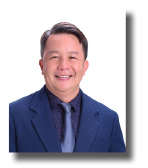
ASSOCIATE PROFESSOR III
The Great Replacement Theory has garnered attention in both the United States and the Philippines, albeit with distinct contexts. Let’s delve into the details:
The Great Replacement Theory is a far-right conspiracy theory that has gained traction among certain segments of the U.S. population, particularly those whose demographics are predominantly white.
According to this theory, left-leaning domestic or international elites (sometimes alleged to be under the influence of Jewish co-conspirators) are intentionally orchestrating the replacement of white citizens with nonwhite immigrants (such as Black, Hispanic, Asian, or Arab individuals).
Advocates of this theory argue that the increasing presence of nonwhite immigrants, coupled with their higher birth rates compared to whites, will eventually lead to nonwhite majorities in the country. These new majorities, as the theory posits, will then gain control over national institutions, dilute or erode distinctive cultures, and ultimately eliminate the white population.
The theory gained wider attention in the early 21st century with the publication of Le Grand Remplacement (2011) by French writer and activist Renaud Camus, who specifically focused on Muslim immigrants in France as agents of replacement1.
In the Philippines, the context is different, but there are parallels.
While the Great Replacement Theory itself may not be explicitly discussed, concerns about political survival and demographic shifts exist.
The fear of being replaced is not uncommon in Philippine politics. It arises from various factors, including:
Demographic Changes: The Philippines has experienced population growth, urbanization, and migration. These shifts impact political dynamics, representation, and power structures.
Electoral Competition: Political leaders often fear losing their positions due to electoral challenges. The fear of being replaced by opponents drives their actions and policies.
Ethnic and Regional Identities: The Philippines is a diverse nation with various ethnic and regional identities. Politicians may exploit these divisions to secure their own survival.
Changing Political Landscape: As new generations emerge, political preferences evolve. Incumbents worry about staying relevant and retaining their support base.
While the difference is big , the similarity is also alarming and striking. The probability of being replaced and the possibility of being defeated on an election driven by notion and feelings that may or may not be prevalent is indeed very likely. As Frank Sinatra would say riding high in April shot-down in May.
So it is common to have our politicians jockey up their position and create probable shifts in the leadership landscape. It allows the incumbent to sustain its gain otherwise the inaction may create his or her downfall.
Will we witness a Great Replacement or a Great Retention?



